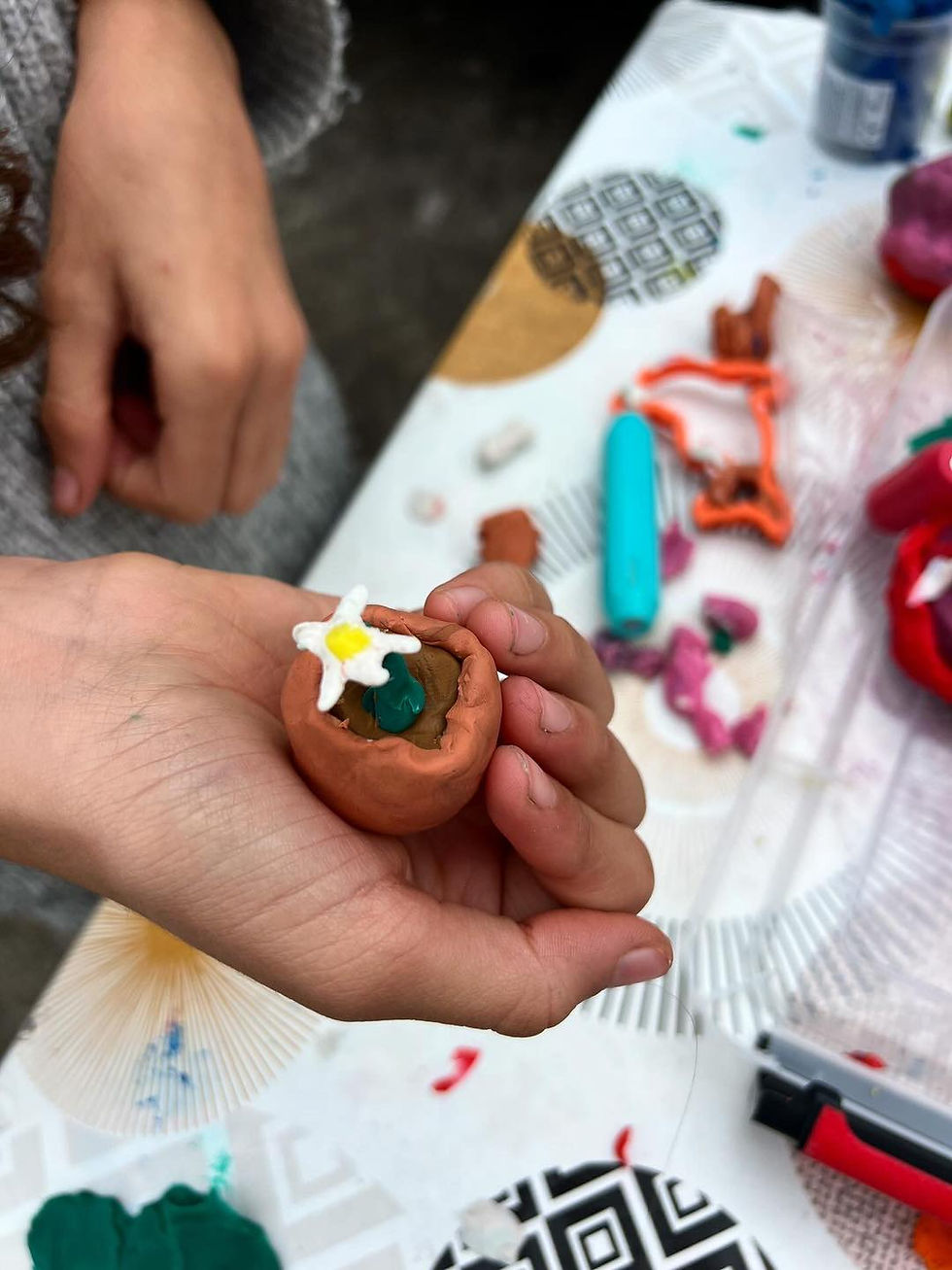Double Exposure
- Art Refuge

- Jan 13, 2017
- 3 min read

NORTHERN FRANCE
DUNKERQUE, THURSDAY
After our break from France over the new year, the bitter cold and wet weather brought us back into the present of people’s lives in the camp in Dunkerque. We carefully prepared the space with the overhead projector in one half of the room and a welcoming area for adults to sew or talk or play board games in another.
We and they are acutely aware of the conditions of this place – the waiting, limbo, controls operating in the camp – with people trapped by complexities of circumstance – prison, hospital treatment, sickness, lack of money, and familial relationships tested to their limits. We know that some things cannot be talked about, and grasp the sense of this place as unsafe.
A few people came into the space itself that we knew in Calais, having been away and returned to the area. Against this backdrop we were warmly greeted by many and people soon settled into a rhythm for the afternoon, around 40 people moving in and out of the space.
The adults played backgammon, charged their phones, drank tea and looked through our postcards. Parents moved between the spaces while the children experimented with light, played with different points of focus, explored new things. The projected light allowed for double layers of exposure and a transformative quality within the space. There was dancing and humour at the end of the afternoon as several stayed to help clear up, including the very youngest members of the group.
CALAIS, FRIDAY
Bitter cold winds and snow reminded us of last Winter in the Calais camp and we thought about those sleeping in sub-zero temperatures in tents or in the open on other European borders further south.
Today we met with various dead ends and seemingly arbitrary closures of places in town – obstacles in our way, one petty impasse after another – leaving us feeling frustrated and impotent.
Catching a bus to the hospital, the Sudanese man we visit told us that he is soon to be thrown onto the streets of Calais unless he takes up a place in a homeless hostel where he will no longer receive the specialist and round the clock treatment that he needs for survival. In amongst this expressed fear and despair, a kind and exceptional French nurse came to talk things through and we managed to find together some respite, a space in which we could then talk about snow and sun and memories of horse riding. We recalled a passage in a book we’ve all read and is set in Sudan in which there is the coming together of strangers in the desert at nightfall as the searing heat of the day vanished, and spontaneous dancing and singing became possible.
In the Safe House at the end of the day we sat around the dining room table with a group of young people, all from Eritrea, who drew together while seeming to find some solace in recounting fragments of their journeys that resonated with the others in the group. One teenage boy described being in a large crowded truck as it drove up through the Sudanese desert, and recalled the lack of water and food and exposure to the elements – the heat by day and the cold at night. He found a photograph on his phone that he had taken at the time of a group of young fellow travellers lying out on the sand, exposed to the cold night with no shelter.
Meanwhile a traditional coffee pot was formed in plasticine, a rolling Eritrean landscape and churches drawn, while the smell of cooking for the evening meal filled the room from the kitchen and we said goodbye for another week.



Comments